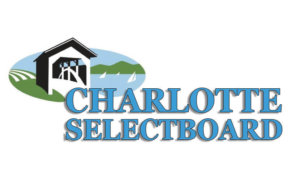It’s inevitable: Conflict of interest in a small town
 The Selectboard this winter had to vote on whether or not to present Town Plan and Land Use Regulation amendments on the town ballot; two members of the board also owned property that would be affected should those amendments pass. A recent candidate for the town zoning administrator position was reportedly related to a member of the Zoning Board of Adjustment (ZBA); this person also owns a business within the East Charlotte Village. A current member of the ZBA is also on the Selectboard; multiple sources confirm that his presence on both boards is on the verge of being problematic, though it’s not illegal. The publisher of this newspaper is the spouse of a member of the ZBA, who recently wrote a letter to the editor persuading voters to vote against the aforementioned amendments. That ZBA has been reported in this paper to have recent violations of open meeting laws and possible violations of their own conflict of interest policies.
The Selectboard this winter had to vote on whether or not to present Town Plan and Land Use Regulation amendments on the town ballot; two members of the board also owned property that would be affected should those amendments pass. A recent candidate for the town zoning administrator position was reportedly related to a member of the Zoning Board of Adjustment (ZBA); this person also owns a business within the East Charlotte Village. A current member of the ZBA is also on the Selectboard; multiple sources confirm that his presence on both boards is on the verge of being problematic, though it’s not illegal. The publisher of this newspaper is the spouse of a member of the ZBA, who recently wrote a letter to the editor persuading voters to vote against the aforementioned amendments. That ZBA has been reported in this paper to have recent violations of open meeting laws and possible violations of their own conflict of interest policies.
It’s all tangled up, but such is the nature of a volunteer municipal government in a town with fewer than 4,000 residents. Generations of families live here and work here, some town employees live in town, and the nature of Charlotte’s municipal government is that interested citizens volunteer their time to keep the gears turning. It’s inevitable that people will be related to each other or have businesses, farms or camps near commercial zones or proposed development.
Letters to the editor in The Charlotte News over the past weeks, and passionate posts on the neighborhood email service Front Porch Forum pointed the finger in particular at Selectboard members Carrie Spear and Frank Tenney, both of whom did not recuse themselves for the LUR and Town Plan amendment vote. Both said publicly that they didn’t recuse themselves because they didn’t think they had any conflict of interest.
The Vermont League of Cities and Towns (VLCT), a municipal support nonprofit, says on its web site, “Conflicts of interest inevitably arise in the workings of small-town government, and they should be avoided whenever possible. However, the presence of a conflict does not necessarily mean that a municipal official may not continue to act in a particular situation. The deciding factor should be whether the official is able to act impartially despite the presence of a conflict.”
Spear and Tenney both decided they could act impartially; some people questioned publicly whether or not this was true, which leads to the next question: What can be done about it?
The VLCT answers this question succinctly: “An elected official may not be forced to recuse himself or herself or to resign if requested, even if a clear conflict of interest has been identified. Other individuals may express their opinions about the subject, and may privately or publicly admonish the elected official who fails to handle a conflict appropriately, but such is the extent of their power over the situation.”
The Selectboard began on March 8 their attempt to respond to Charlotters’ requests for action. The town itself, for employees, officials, and boards, committees, and commissions, has a policy posted on the town website. The Planning Commission and ZBA also have policies posted on the town website.
Selectboard chair Matt Krasnow said during Monday’s meeting that they have committed “to look at the conflict of interest policy, see if it can be improved in any way, and also look at specific instances and to kind of debrief on those from the past year. Because some of those are appointed positions, and speaking with general counsel, they thought it would be a conservative idea to have discussions about appointed officials begin in executive session.”
During executive session, the board is not allowed to take any action and because their discussion involved a particular individual appointed to a particular position, the results of their conversation remained private.
Upon their return, Krasnow said, “The Selectboard recognizes that there is public concern about the existing conflict of interest policy, and the Selectboard will be soliciting input from the public about how to improve this policy, as well as researching the idea of having an Ethics Committee.”
New member Lewis Mudge will guide the effort, and Krasnow invited interested members of the public to contact Mudge with concerns. The Selectboard will take the issue up again at their March 22 meeting.

